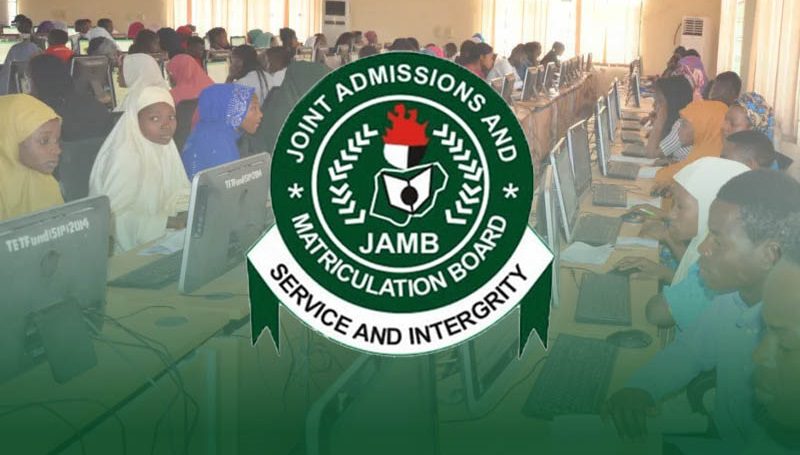
WAEC 2025/2026 IRS Obj & Theory Answers
IRS-Obj
1DBCBADACAA
11BBDBAACBDC
21BCABCCAABC
31DDCDCCCABC
41ADBBCABCDD
(1a)
Jahiliyyah is an Arabic term meaning “ignorance.” It refers to the period before the coming of Islam when the Arabs lived in moral, social, and religious ignorance. It was a time of idolatry, tribalism, injustice, and immorality.
(1b)
(i) Al-Lāt
(ii) Al-‘Uzzā
(iii) Manāt
(iv) Hubal
(1c)
(i) Islam abolished idol worship and established belief in one God (Tawhid).
(ii) It promoted the equality of all human beings regardless of race or status.
(iii) It improved the status of women by banning female infanticide and granting them rights.
(iv) It prohibited alcohol and gambling, which were common social evils.
(v) It encouraged justice, honesty, and protection of the poor and orphans.
(vi) It replaced tribal conflicts with unity and brotherhood among Muslims (Ummah).
(2)
(3a)
Imān is the Islamic term for faith or belief, specifically the firm belief in the heart, affirmation by the tongue, and actions by the limbs in the core tenets of Islam.
(3b)
(i) Belief in Allah
(ii) Belief in His Angels
(iii) Belief in His Books
(iv) Belief in His Messengers
(v) Belief in the Last Day
(vi) Belief in Divine Decree (Qadar), both good and bad
(3c)
(i) It teaches that everything happens by Allah’s will and knowledge.
(ii) It builds trust in Allah’s plan, even during hardship.
(iii) It encourages patience during trials and gratitude during ease.
(iv) It reminds believers that success and failure are part of divine wisdom.
(v) It promotes reliance on Allah rather than solely on personal effort.
(vi) It reduces anxiety over the future by affirming divine control.
(vii) It strengthens acceptance of life’s events without resentment.
(viii) It nurtures humility, knowing that humans do not control outcomes.
(4a)
In Islam, marriage (nikah) is a sacred institution and a legal contract between a man and a woman. It is considered a foundation of family life and society, based on mutual love, respect, and support. Marriage in Islam is not just a social contract but also a religious bond that is governed by Islamic law (Sharia). It is intended to provide a stable environment for the couple to live together in harmony, fulfill each other’s needs, and procreate.
(4bi)
(i)Financial Support: Providing for the wife’s and family’s financial needs, including food, clothing, and shelter.
(ii)Protection and Care: Protecting the wife and family from harm and providing care and support in times of need.
(iii)Emotional Support: Treating the wife with kindness, compassion, and respect, and providing emotional support.
(iv)Guidance and Leadership: Providing guidance and leadership in the household while consulting with the wife and considering her opinions.
(v)Respect and Kindness: Treating the wife with respect and kindness, as emphasized in the Quran and Hadith.
(vi)Fairness and Justice: Being fair and just in dealings with the wife, especially in polygynous relationships.
(4bii)
(i)Obedience and Support: Being obedient to the husband in matters that do not involve disobedience to Allah and supporting him in family decisions.
(ii)Managing the Household: Managing the household efficiently, including taking care of domestic duties and raising children.
(iii)Financial Prudence: Being prudent with household finances and managing resources wisely.
(iv)Respect and Loyalty: Showing respect and loyalty to the husband and maintaining the integrity of the marriage.
(v)Nurturing Children: Nurturing and educating children according to Islamic values and principles.
(5a)
Qāla Rasūlullāh (sallallāhu ‘alayhi wa sallam):
Mā nahaytukum ‘anhu fajtanibūh, wa mā amartukum bihi fa’tū minhu mā istata‘tum; fa innamā ahlaka alladhīna min qablikum kathratu masā’ilihim wakhtilāfuhum ‘alā anbiyā’ihim.
(5b)
The Messenger of Allah (peace be upon him) said:
“What I have forbidden you, avoid it; and what I have ordered you to do, do as much of it as you can. For those who came before you were destroyed only because of their excessive questioning and their disagreement with their prophets.”
— Reported by al-Bukhari and Muslim.
(5c)
(i) Muslims must strictly avoid what the Prophet has prohibited.
(ii) Commands from the Prophet should be followed to the best of one’s ability.
(iii) Excessive questioning in religious matters can lead to confusion and misguidance.
(iv) Disagreement with religious authorities was a cause of destruction for past nations.
(v) Obedience to the Prophet (SAW) is a key part of Islamic faith and practice.
(6a)
(i)Usman dan Fodio (1754–1817): A key figure in the Sokoto Caliphate, known for his scholarship and reformist movements.
(ii)Abdullahi dan Fodio (1766–1828): Brother of Usman dan Fodio, he was a scholar and played a significant role in the establishment of the Sokoto Caliphate.
(iii)Muhammad Bello (1781–1837): Son of Usman dan Fodio, he was a scholar and leader who contributed to the intellectual and administrative development of the Sokoto Caliphate.
(iv)Ahmadu Baba al-Timbukti (1556–1627 is more accurate for his lifespan, but considering the influence and potential overlap in scholarly networks): Though slightly before the 18th century, his influence might have extended.
(6b)
(i)Promotion of Literacy: Islam emphasized the importance of reading and writing, leading to increased literacy rates among West Africans.
(ii)Development of Islamic Scholarship: Islam led to the development of scholarship in various fields, including theology, jurisprudence, and Arabic language studies.
(iii)Establishment of Educational Institutions: Islamic schools and universities were established, providing centers for learning and intellectual development.
(iv)Advancement of Literature: Islamic literature flourished, with works in Arabic and local languages, contributing to the region’s literary heritage.
(v)Influence on Local Languages: Islam influenced the development of local languages, with many adopting Arabic script and incorporating Arabic vocabulary.
(vi)Fostering of Intellectual Networks: Islam facilitated the creation of intellectual networks across West Africa and beyond, connecting scholars and promoting the exchange of ideas.
(vii)Development of Legal and Judicial Systems: Islamic law (Sharia) influenced the development of legal and judicial systems in many West African societies, providing a framework for governance and dispute resolution.
Share This Post: This post can be helpful to your friends or classmates, you can share it using the buttons below!












Leave Your Comment